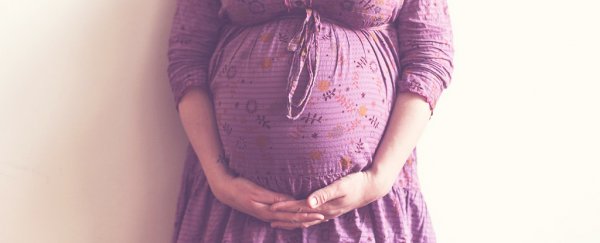Caesarean section (or C-section) deliveries can save lives when babies are too large to be born naturally - or if there are other health complications - but they also appear to be affecting how humans are evolving, scientists report.
In the past, larger babies and mothers with narrow pelvis sizes might both have died in labour. Thanks to C-sections, that's now a lot less likely, but it also means that those 'at risk' genes from mothers with narrow pelvises are being carried into future generations.
Cases where a baby can't fit through the birth canal have increased from 30 in 1,000 births in the 1960s to 36 in 1,000 today because of this C-section effect, according to estimates from researchers at the University of Vienna in Austria. That's a significant shift in just half a century.
"Without modern medical intervention, such problems often were lethal and this is, from an evolutionary perspective, selection," theoretical biologist Philipp Mitteroecker told Helen Briggs at the BBC.
"Our intent is not to criticise medical intervention, but it's had an evolutionary effect."
The team used a mathematical model based on obstructed childbirth data to reach their estimates.
More detailed studies would be required to actually confirm the link between C-sections and evolution, as all we have now is a hypothesis based on the birth data. But Mitteroecker and his colleagues say it's important to consider the effect the rise in these procedures is having.
There are already a few conflicting evolutionary forces at work here, scientists think, in what's known as the obstetrical dilemma.
The 'dilemma' is that the larger a baby is when it's born, the more likely its chances of survival. At the same time, women have evolved with smaller pelvic sizes to aid upright walking and to limit the chances of premature births.
Both evolutionary pressures are working to try and keep babies healthy… but they're also working against each other.
"One side of this selective force - namely the trend towards smaller babies - has vanished due to caesarean sections," Mitteroecker told the BBC.
It's important to restate that the team isn't criticising the use of C-sections. Their study is about the potential effects of the procedure on society in the long term - they're not trying to discourage it.
"The pressing question is what's going to happen in the future?" Mitteroecker said.
The researchers want to spark a discussion about what level of C-section births is suitable. According to the World Health Organisation, it should be around 10-15 percent if we want to ensure that babies and mothers stay as healthy as possible.
Research has been frustratingly ambiguous about the potential pros and cons of caesarean births: they have been linked to an increased chance of obesity, but no one can say why, and there's preliminery evidence that the way you're born could have an influence on your brain development - but only in mice.
One thing's for sure though - the procedure is saving a significant number of lives.
For expectant mothers, it's important to make choices that are as informed as possible, and that's the aim of the new study from Austria.
As for the future, the researchers don't think natural births are going away any time soon.
"I expect that this evolutionary trend will continue but perhaps only slightly and slowly," Mitteroecker told the BBC. "There are limits to that. So I don't expect that one day the majority of children will have to be born by [Caesarean] sections."
The findings are published in PNAS.
